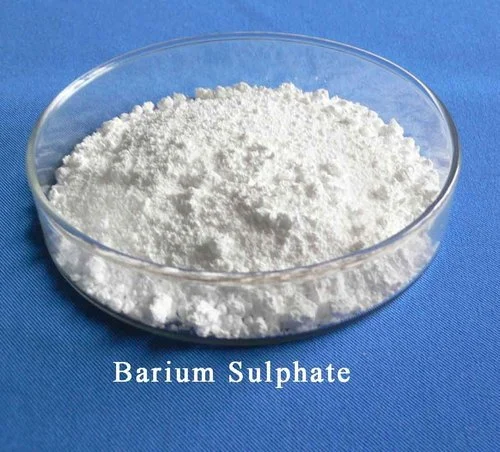Barium Sulfate: Uses, Benefits, and Important Facts

Barium sulfate is a common chemical compound used in many industries. Though it may not be a household name, it plays a major role in medicine, oil drilling, paints, plastics, and more. This article will help you understand what barium sulfate is, how it is used, and why it is so important. We will also explain its safety and environmental effects in simple words.
What is Barium Sulfate?
Barium sulfate is a white, powdery substance made from the element barium and sulfur. Its chemical formula is BaSO₄. It does not dissolve in water and is considered non-toxic in its natural solid form. Barium sulfate is mostly known for being very heavy and dense, which makes it useful in industries where weight is important.
Physical and Chemical Properties
Here are some key features of barium sulfate:
-
Color: White
-
Texture: Fine powder or crystal
-
Density: Very high, meaning it is heavier than many other powders
-
Solubility: Does not dissolve in water or most acids
-
Stability: Very stable, does not react easily with other substances
These properties make barium sulfate a great material for many special applications.
Where is Barium Sulfate Found?
Barium sulfate is naturally found in a mineral called barite. Barite is mined in many countries including China, India, Morocco, and the United States. After mining, the barite is processed to extract pure barium sulfate for industrial use.
How is Barium Sulfate Made?
Barium sulfate is made through two main methods:
-
From Natural Barite
Barite is crushed and cleaned to remove unwanted materials. The purified barite then becomes barium sulfate. -
Chemical Reaction
Barium salts are mixed with sulfuric acid. This reaction creates barium sulfate as a solid product.
Both methods give us the white powder that is used in different products.
Common Uses of Barium Sulfate
Let’s explore how barium sulfate is used in everyday life and various industries.
1. In the Medical Field
One of the most well-known uses is in medical imaging. Doctors use barium sulfate in a special drink called a barium meal or barium swallow. It helps highlight parts of the stomach and intestines on X-rays.
-
It shows clear images of the digestive system.
-
It helps detect ulcers, tumors, or blockages.
Because it does not dissolve in the body, it passes through safely and is not absorbed into the bloodstream.
2. In the Paint and Coating Industry
Barium sulfate is added to paints, coatings, and inks because:
-
It makes paint thicker and smoother.
-
It adds brightness and improves color.
-
It increases durability.
It is often used in automotive paints, house paints, and protective coatings.
3. In Oil and Gas Drilling
In the oil industry, barium sulfate is used in drilling fluids or mud. It helps in:
-
Controlling pressure in deep oil wells.
-
Preventing explosions.
-
Cooling and cleaning the drill bit.
Its high density is perfect for these tough conditions.
4. In Plastics and Rubber
Manufacturers use barium sulfate to make plastic and rubber products stronger and better looking.
-
It adds weight and strength.
-
It gives a clean, white appearance.
-
It helps block harmful light rays.
It is commonly used in plastic pipes, floor tiles, and insulation materials.
Benefits of Using Barium Sulfate
There are many reasons why industries prefer barium sulfate:
-
Non-toxic (when solid): Safe for many uses including medicine.
-
Chemically stable: Doesn’t react with other materials.
-
High density: Good for applications needing weight or bulk.
-
Insoluble: Doesn’t dissolve, making it ideal for medical imaging and oil drilling.
-
Cost-effective: Cheaper than some other heavy materials.
Is Barium Sulfate Safe?
In general, solid barium sulfate is safe to use. Especially in medical procedures, it is approved by health organizations and used under doctor supervision.
However, barium in other forms (such as soluble barium salts) can be toxic. That’s why it’s important to use only the correct, approved form of barium sulfate.
Precautions and Safety Measures
Even though barium sulfate is usually safe, here are some precautions:
-
Do not inhale the powder. Inhaling any fine dust, including barium sulfate, can irritate your lungs.
-
Avoid skin or eye contact in industrial settings. Use gloves and goggles when handling large amounts.
-
Proper disposal is important to avoid environmental problems.
Workplaces using barium sulfate must follow safety guidelines to protect workers.
Environmental Impact
Barium sulfate itself is not harmful to the environment because:
-
It does not dissolve in water.
-
It does not move easily in soil.
-
It does not break down into harmful chemicals.
However, mining barite (its source) can cause land damage, water pollution, and air pollution if not done carefully. Responsible mining and proper waste disposal are needed to reduce its environmental footprint.
To read more blog: A Beginner’s Guide to Construction Chemicals Used in UAE Projects
Final Words
Barium sulfate is a valuable and widely used chemical in many industries. From medical imaging to oil drilling, its special properties make it useful in different ways. It is generally safe and environmentally stable when used correctly. Whether in your hospital tests, your wall paint, or deep underground oil wells, barium sulfate is quietly playing an important role in modern life.




